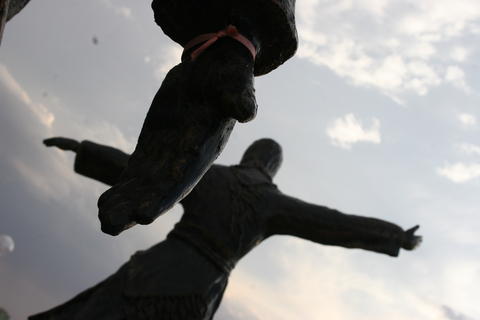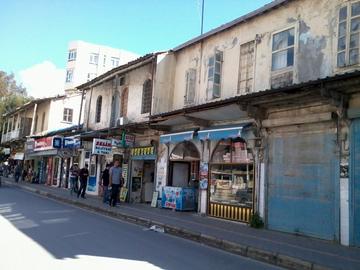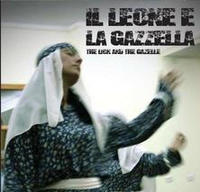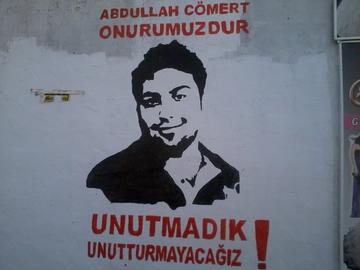
Hacibektaş (photo A. Rossini)
The dialogue between the government and Alevis stalls, while the largest Turkish minority is protesting against Erdoğan. The difficult situation in the province of Hatay
According to a report released in late November by the Turkish police, based on a sample of 5,513 persons detained during the protests, 78% of participants in the demonstrations for Gezi Park was Alevi. The Alevi minority in Turkey is made of some 15 million people, who practice an unorthodox variety of Islam, that differs from Sunnism in rites, practices and character.
There has been controversy about the procedures followed by the police to obtain such data, namely concerning previous illegal cataloguing of these non-Sunnis "suspects". The strong Alevi presence in Gezi, however, remains an objective reality. Many districts, such as Gülsuyu, Gazi, Okmeydani, Ümraniye (Istanbul), Dikmen, Tuzluçayır (Ankara), Armutlu (Antakya-Hatay), inhabited mainly by the Alevi left, were the scene of the fiercest protests in the summer, so much so that some wondered about an Alevi rising.
An unfinished dialogue
The answer to this question should be sought on two distinct fronts. The first relates to the policies pursued by the government of Prime Minister Tayyip Erdoğan against the minority. The scapegoating of Alevis for the events of last summer has done nothing but throw further fuel to an already burning flame. Community leaders accuse the government, increasingly identified as openly pro-Sunni, to play the sectarian card for political ends and hold on to its own electoral base. They also report systematic efforts to slander the minority in daily life with discrimination, exclusion from public functions, and fear of losing one's job.
After the dialogue started in 2009 by Ankara with representatives of the Alevi community, which never reached any effective conclusion, the demands of the minority were again excluded from the "democratization package" announced by the government last September. Staunch defenders of secularism since the dawn of the republic, the Alevis want the state to maintain equal distance from all religions. The Directorate of Religious Affairs, a public body responsible for the management of the religious needs, is financed by fees paid by all citizens, but only represents Sunni Islam.
The main demands of Alevis consist in the recognition of cemevi, their places of worship, and the exemption of children from religion classes in school, always set according to a Sunni perspective.
Hatay
The second front where to look for the causes of the discontent of the Alevi population is the regional policy pursued by Ankara since the start of civil war in Syria, the consequences of which are particularly felt in the province of Hatay , on the border with the war-torn country. Here, a good part of the population is made of Arabic-speaking Alevis who have strong family and cultural ties with Syria. There is talk of around 600,000 people living in Hatay only, reaching 2 million in the region between Adana and Mersin.
Since the beginning of the conflict, Alevis have proved sympathetic to al-Assad. The arrival of hundreds of thousands of Syrian refugees in Turkey, Ankara's openly pro-Sunni approach, and the freedom of movement allowed by Turkish authorities to Syrian opposition activists, including groups affiliated with al-Qaeda, have raised the concerns of the Alevi population.
The situation was further aggravated by the explosion of two car bombs in Reyhanlı last March. Prime Minister Erdoğan commented on the incident saying that 53 "Sunnis" – not Turks – had been killed. The incident has strengthened the anti-Erdoğan mood among the Alevis and created a situation of permanent tension, silenced by the mainstream media, but resulted in demonstrations in Gezi.
The victims of the protests
It is no coincidence that three of the young people who died as a result of the clashes between police and protesters are Alevis, including Abdullah Cömert (22), killed by the police during protests in the district of Armutlu in Antakya, capital of Hatay. After the protests, the police carried out numerous arrests in the city.
The atmosphere in Antakya is still very tense. Retailers are reluctant to speak. Sheba, a young woman who works at a hardware store and agrees to talk, explains to OBC that "it was a great pity for the young people who are dead, these facts should not happen. This is a quiet place to live in".
On leaving the store, a few yards later, graffiti on a wall read: "Abdullah Cömert is our honour. We have not forgotten and will not let you forget". On the opposite pavement, a small altar shows photos of all young "martyrs" of Gezi. I hear this is the place where last September Ahmet Atakan, 23, died after falling from a roof for never clarified reasons, during a night of clashes with police. In the nearby shops, nobody wants to talk. "We know nothing", they say, "the facts occurred at night, we had already closed". The last chance is a bakery, open until late. Inside, I am told that yes, there was a person who had seen everything and will be back in a moment. Nobody shows up.
Hope in the European Union
Proceeding towards İskenderun, a few tens of kilometres after Armutlu, you get to Samandağ, where last summer other protests took place, but did not end up in violence. The town has a population of about 120,000 souls, all "native". The Syrian refugees do not come here.
Şadiye Say has owned the local newspaper Samandag since 1988. She is an energetic woman who answers questions without lingering a second. "The facts of Gezi in Hatay were a reaction of the population towards the government, especially for policy developments in Syria", she explains. "Ankara has interfered in the internal affairs of another country, saying that al-Assad had to go, after it used to call him 'brother'. This inevitably creates consequences that will have to be faced".
Say also explains that the Syrian conflict has caused a very serious damage to the economy of the region, forcing exporters to divert their routes on Egypt. "Here in Hatay society is very diverse, there are all sorts of religions and ethnicities. But this very situation makes us suffer a lot. I do not know how things will evolve in the future, but the local population strongly supports Turkey's entry into the European Union, because people believe that accession will allow them to gain more political and cultural rights, as well as the opportunity to study in their mother tongue", specifies the journalist.
The latest developments in the Middle East have shown how the Alevi issue in Turkey is not independent of the regional situation. Developments in Syria indicate how a Turkish policy that supports a single – Sunni Muslim – regional actor can cause unexpected, dangerous consequences for Ankara. Recent attempts by Foreign Minister Ahmet Davutoğlu to mend relations with the Shiites in the region, starting with Iraq, can be interpreted as a first change of direction.
blog comments powered by










